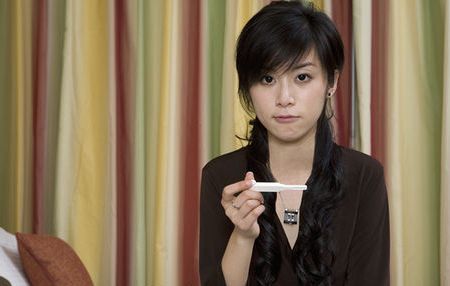No matter what task it is that you are trying to finish, there will surely be a myth associated with that.
Let’s say that you are outdoors and you suddenly had a bad case of poison ivy. A friend, who is no medical expert, might advise you to use calamine lotion.
This is a medical myth that you should not believe, because the only thing that will help ease the pain associated with the case of poison ivy is steroid cream like Hydrocortisone. This is just one of the many medical myths which persist up to now.

If you don’t want your condition to get worse, then it is good to check first whether there is a truth behind a particular medical myth – just to be on the safe side[women’s health myths] . The same thing holds true when it comes to infertility problems.
Unfortunately, despite the existence of happy couples who are perfectly happy with the children that the mother has conceived over the years of their marriage – there are still those who are tirelessly trying.
For some reason or another, they have not been given the chance to bear a child out of their marriage or relationship.
Now, if you are among these couples who are still trying to have a child, what are the top misconceptions that you should not take to heart? Read on to find out.
Enumerating the Top 8 Misconceptions about Infertility Problems
Trying to have a baby and not succeeding is bad enough – so you shouldn’t add the burden of believing in what other people are saying when it comes to the subject of infertility problems.
Here are the top 8 misconceptions about infertility problems and the truth behind them:
1. “When a couple fails to have a child, it could be because It’s all in the head.“
When you mention to a couple who is trying to have a baby that it’s all in the head, it is actually quite an insensitive thing to say.
The reason why this myth persists is that there are couples who claim that for the longest time, they have consciously been trying to procreate – and they fail.
But once they stopped trying, that is when the woman ‘magically’ conceives. There is no truth to this myth at all.
Infertility is a medical condition wherein a couple is unable to produce an offspring. The reason for this could either be the physical inability of a woman to conceive, or the inability of a man to impregnate.
Sure, there might be some psychological factors which affect the capacity of a couple to conceive – but they are usually effects of not being able to bear a child, rather than its being the root cause of the problem.
 2. “There must be something wrong with you if you cannot get pregnant, because why is everyone else so fertile?“
2. “There must be something wrong with you if you cannot get pregnant, because why is everyone else so fertile?“
This is a common dilemma that women who are in their child bearing age face. Basically, the optimum age for women starts at 18 and ends at about 25.
Those who are in their late 20’s do have a declining fertility – and as you grow older, the decline becomes gradual.
So essentially, even those who are in the optimal child-bearing age can experience infertility problems. In fact, according to the Center for Disease Control, an estimated 10 to 15% of the female population does have infertility problems.
3. ” If a couple has problems getting pregnant, it must be the woman who has the problem.”
 This is yet another misconception about infertility that persists up to now.
This is yet another misconception about infertility that persists up to now.
Most people assume that just because it is the woman who gets pregnant, it is her who is at fault if she fails to have a child.
In a published article in the Journal of Urology, here are a couple of interesting statistics that men play when it comes to infertility:
- In 20% of infertile couples, it is the man who is solely responsible for the problem of their inability to conceive.
- In about 30 to 40% of infertile couples, men do have a contribution to the problem of the woman being unable to bear a child.
4. “Male fertility does not change with age.“
Although there are some men well into their 50’s, 60’s or even 70’s or 80’s who are still able to father a child, this does not mean that they will be fertile forever.
Experts say that a man’s fertility and the quality of his sperm decline as he reaches the age of 35.
Although the decline in fertility is less gradual as compared to women, it could still be the reason behind a couple’s infertility problems.
 5. “Women who experienced painful or infrequent periods may be infertile.“
5. “Women who experienced painful or infrequent periods may be infertile.“
For this, you do need to check with a medical expert whether your painful or infrequent menstrual periods may have affected your ability to bear a child.
However, these are not necessarily a cause of a woman being infertile.
Watch out for progressively increasing painful periods because this may be a symptom of endometriosis.
6. ” If you are infertile, it could be hereditary.“
If you have a close relative who is infertile – like your mother, sister or aunt – this does not necessarily mean that you will be infertile, too.
In most cases, infertility is not a hereditary condition – although you do need to check with a medical expert so that there can be a complete evaluation of your particular case.
7. “Stress is a cause of infertility.“
Just like the myth which says that being infertile is all in the head, this misconception that stress is a cause of infertility is just that – a myth.
Although stress may contribute to a woman’s delayed ovulation, it does not necessarily lead to her being infertile.
8. “If you are over 35 and are trying to have a baby, you need to immediately seek treatment.“
 As mentioned earlier, the fertility of a woman does decline as she ages.
As mentioned earlier, the fertility of a woman does decline as she ages.
However, there is no need for you to immediately seek treatment for infertility if you are trying at the age of 35.
Just keep on trying, don’t use birth control and wait for about six months.
If nothing happens by then, that is the time that you can seek the help of the medical experts.
This is unlike a younger couple who can wait for at least a year of trying to conceive before it is recommended that they get an expert’s opinion.
Know about:
Natural Ways To Dilate Cervix Naturally






